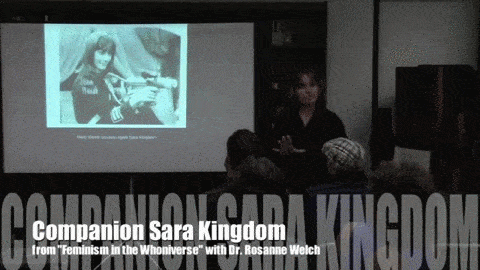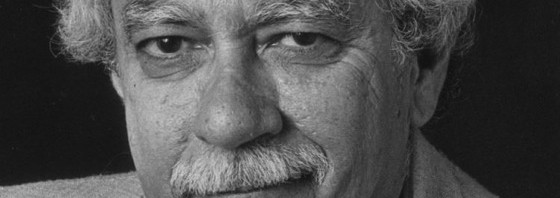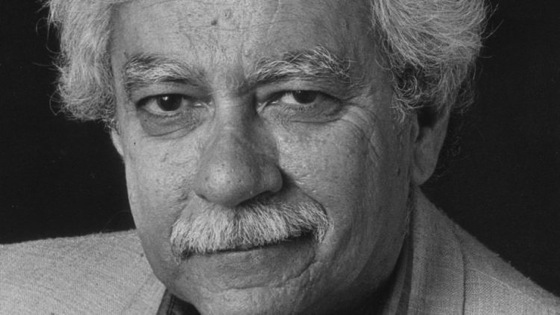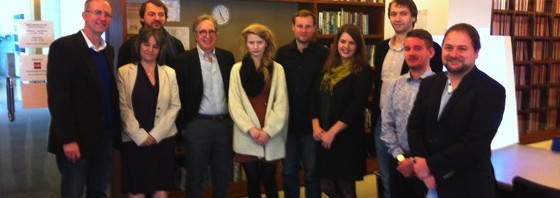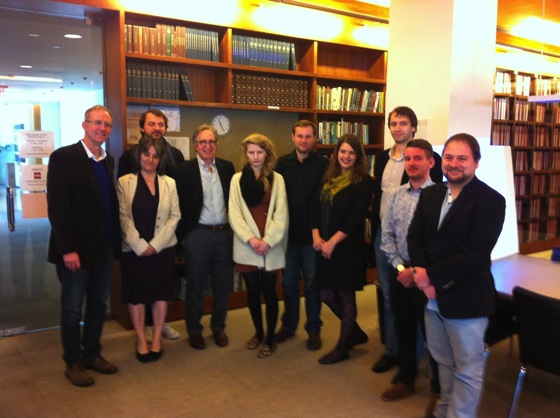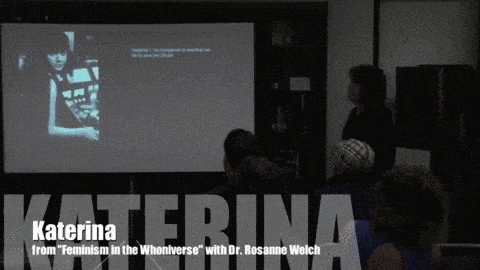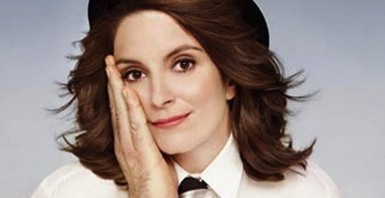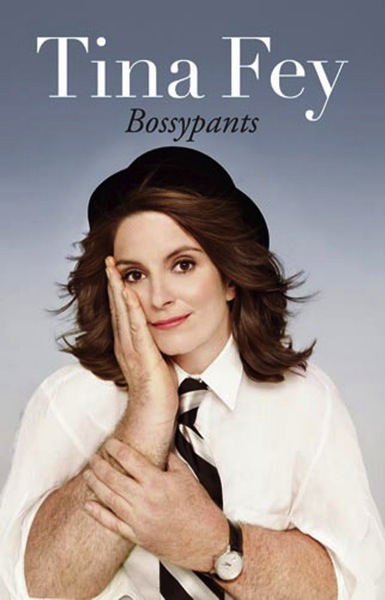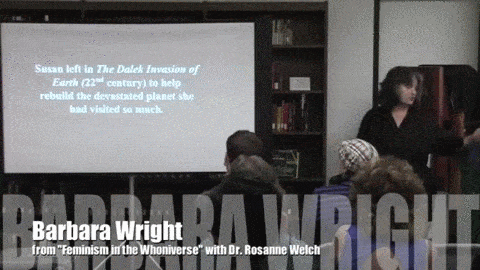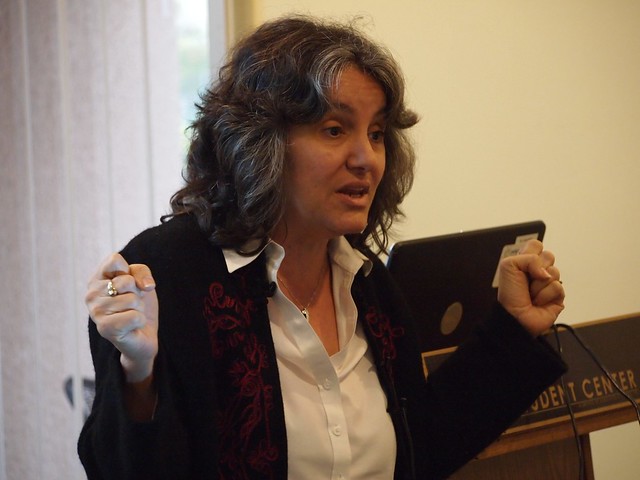A clip from this longer presentation – Doctor Who: Feminism in the Whoniverse with Dr. Rosanne Welch
Watch this entire presentation – Doctor Who: Feminism in the Whoniverse with Dr. Rosanne Welch
Dr. Rosanne Welch (https://rosannewelch.com) speaks on “Feminism in the Whoniverse” of Doctor Who, the BBC television program now in its 50th year. She reviews each of the Doctor’s female companions and speaks on how they are represented in the program and how they represented the women of their respective periods.
Transcript:
Sara Kingdom. So now we’re thinking, what are the jobs of the women he is going to meet? They’re not all housewives. They’re not girlfriends. They can’t all be his granddaughter. So, who are these women? In this case, Sara Kingdom is a double-agent. So, we have a spy. Remember, now we’re in the late 60’s. The Cold War is going on. We think spies are very cool. We have The Avengers on English television. So, ooo, spies. A lot of chicks are spies. Really, in the real world, not that many were, but TV and the movies are our place to fantasize what we would like to be. So, Sara is a cool character. if you notice here, this is Jean Marsh as an actress and a writer she is a very important person. She is going to invent a program called Upstairs, Downstairs. Which was the Downton Abbey of its day. It’s going to be a huge success. She’s going to star in it and write the entire set of segments. So, she’s a very important performer and writer as well as she is a pretty interesting character that we meet along the way. Now, we’ve got to get into the question, though, what makes chicks tougher is putting them into pictures with guns. I’m not a fan of that, but frankly our culture and at this point English culture to an extent, had the idea that that makes them cool. l.
Feminism in the Whoniverse was presented at the Cal Poly Pomona University Library where Dr. Welch teaches in the IGE (Interdisciplinary General Education) program.
This is the 4th talk on various aspects of Doctor Who that Dr. Welch has presented. You can find these talks using the links below.
- Doctor Who and Culture
- Doctor Who Regenerated
- “How the Growing Popularity of the English Who-niverse Effected American TV” with Dr. Rosanne Welch
Subscribe to Dr. Welch’s YouTube Channel
Podcast: Play in new window | Download
Subscribe: RSS
